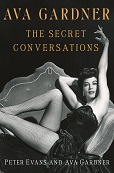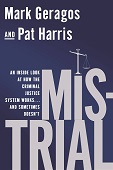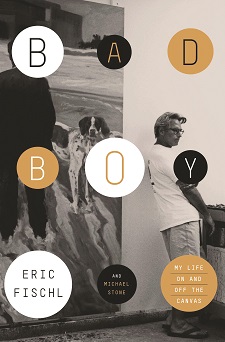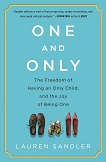 Ava Gardner: The Secret Conversations,
by Ava Gardner and Peter Evans (Simon & Schuster),
thrusts a three-dimensional
portrait of the iconic pinup girl into posterity. After
agreeing to collaborate with Evans for a memoir project,
Gardner quashed the book in embarrassment once she realized
just how much of herself she had revealed. Only after
Evans passed away was this exclusive account made available.
Hard living and the high life are blurred together throughout
the narrative and shot through with Gardner’s dazzling
beauty and ahead-of-her-time sexuality. Her charismatic
voice, captured in Evans’ minimalist prose, is the driving
force of the story, and is never overshadowed by juicy details
from her numerous rendezvous and champagne-drenched marriages to Ernest
Hemingway, Frank Sinatra, and Mickey Rooney. Gardner’s arc from Hollywood starlet
to sex symbol to public service announcement reminds us of so many others
struggling in the public eye.
Ava Gardner: The Secret Conversations,
by Ava Gardner and Peter Evans (Simon & Schuster),
thrusts a three-dimensional
portrait of the iconic pinup girl into posterity. After
agreeing to collaborate with Evans for a memoir project,
Gardner quashed the book in embarrassment once she realized
just how much of herself she had revealed. Only after
Evans passed away was this exclusive account made available.
Hard living and the high life are blurred together throughout
the narrative and shot through with Gardner’s dazzling
beauty and ahead-of-her-time sexuality. Her charismatic
voice, captured in Evans’ minimalist prose, is the driving
force of the story, and is never overshadowed by juicy details
from her numerous rendezvous and champagne-drenched marriages to Ernest
Hemingway, Frank Sinatra, and Mickey Rooney. Gardner’s arc from Hollywood starlet
to sex symbol to public service announcement reminds us of so many others
struggling in the public eye.
 Black
Mistrial,
by Mark Geragos and Pat Harris (Gotham Books),
attacks the notion
that defense attorneys are all complete shysters. Without spending excessive time
bemoaning how those who practice their profession are regarded as fat cats bent on
keeping criminals on the street, the authors explore the causes of the defense counsel’s
fall from grace. Geragos and Harris unpack high-profi le
trials such as O.J. Simpson’s to illustrate just where the criminal
justice system goes wrong. They also sharpen their claws
and take down the biggest perpetuators of the defense-lawyer-
as-scumbag narrative. No player in the criminal justice
game is safe from the withering tongue lashing the authors
deliver. Watch as blowhards like Ann Coulter get sliced and
diced, and overzealous prosecutors and tyrannical judges get
exposed during cross examination. American justice may not
be totally blind. But, like the larger American dream, Mistrial
shows that everyone, not just defense attorneys, will do what
it takes to get a piece.
Black
Mistrial,
by Mark Geragos and Pat Harris (Gotham Books),
attacks the notion
that defense attorneys are all complete shysters. Without spending excessive time
bemoaning how those who practice their profession are regarded as fat cats bent on
keeping criminals on the street, the authors explore the causes of the defense counsel’s
fall from grace. Geragos and Harris unpack high-profi le
trials such as O.J. Simpson’s to illustrate just where the criminal
justice system goes wrong. They also sharpen their claws
and take down the biggest perpetuators of the defense-lawyer-
as-scumbag narrative. No player in the criminal justice
game is safe from the withering tongue lashing the authors
deliver. Watch as blowhards like Ann Coulter get sliced and
diced, and overzealous prosecutors and tyrannical judges get
exposed during cross examination. American justice may not
be totally blind. But, like the larger American dream, Mistrial
shows that everyone, not just defense attorneys, will do what
it takes to get a piece.
 Bad
Boy, by Eric Fischl and Michael Stone (Crown), deconstructs
the experiences that made Eric Fischl the man he is
today. The authors mine Fischl’s childhood, his stint at art
school in the heyday of free love, and his rise as a talented
ingénue in an art world so different from his childhood in the
confi nes of suburbia. They fearlessly turn over every leaf: We
witness traumas such as his raging alcoholic mother’s apparent
suicide and, later, his coke-fueled excesses when he lived as a
rock star artist. But we also see how Fischl’s past, his demons,
his sexuality, his tempers, and the pulsating zeitgeist become a
potent artistic brew that allowed him to create the paintings
that would make him famous. Through language that is both
accessible and poignant, the authors interrogate Fischl’s oeuvre and uncover the links
between personal struggles and the solitude of living in a moralizing society.
Bad
Boy, by Eric Fischl and Michael Stone (Crown), deconstructs
the experiences that made Eric Fischl the man he is
today. The authors mine Fischl’s childhood, his stint at art
school in the heyday of free love, and his rise as a talented
ingénue in an art world so different from his childhood in the
confi nes of suburbia. They fearlessly turn over every leaf: We
witness traumas such as his raging alcoholic mother’s apparent
suicide and, later, his coke-fueled excesses when he lived as a
rock star artist. But we also see how Fischl’s past, his demons,
his sexuality, his tempers, and the pulsating zeitgeist become a
potent artistic brew that allowed him to create the paintings
that would make him famous. Through language that is both
accessible and poignant, the authors interrogate Fischl’s oeuvre and uncover the links
between personal struggles and the solitude of living in a moralizing society.
 One
and Only,
by Lauren Sandler (Simon & Schuster),
blends memoir and expository
writing to make the case that, contrary to popular belief, only-children turn out
just fi ne. Sandler draws from reams of historical writings, famous quotations from
cultural bigwigs, and passé social science research to chronicle
in detail the shaky foundations of the only-child-as-misfi t
cliché. And after tearing down the supposed common knowledge
that only-children are spoiled and poorly adjusted creatures,
Sandler meticulously builds the case, stacking bricks of
contemporary studies, that only-children are not only just as
well adjusted as their multi-sibling counterparts, but in many
cases they have a more secure sense of identity. As her writing
builds steam, Sandler threads the needle by connecting the
demands of motherhood and career to the larger project of
feminism and modernity, arguing everything is more manageable,
and more rewarding, in a one-child family.
One
and Only,
by Lauren Sandler (Simon & Schuster),
blends memoir and expository
writing to make the case that, contrary to popular belief, only-children turn out
just fi ne. Sandler draws from reams of historical writings, famous quotations from
cultural bigwigs, and passé social science research to chronicle
in detail the shaky foundations of the only-child-as-misfi t
cliché. And after tearing down the supposed common knowledge
that only-children are spoiled and poorly adjusted creatures,
Sandler meticulously builds the case, stacking bricks of
contemporary studies, that only-children are not only just as
well adjusted as their multi-sibling counterparts, but in many
cases they have a more secure sense of identity. As her writing
builds steam, Sandler threads the needle by connecting the
demands of motherhood and career to the larger project of
feminism and modernity, arguing everything is more manageable,
and more rewarding, in a one-child family.


